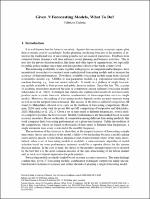Chapter Given N forecasting models, what to do?
Abstract
This work evaluates the forecasting performances of different models using data on Italian unemployment and employment rates over the years 2004-2022 at the monthly frequency. The logic of this work is inspired by the series of M-Competitions, i.e. the tradition of competitions organized to test the forecasting performances of classical and innovative models. Given N competing models, only one winner is selected. The types of forecasting models range from the Exponential Smoothing family to ARIMA-like models, to their hybridization, to machine learning and neural network engines. Model combinations through various ensemble techniques are also considered. Once the observational period is split between the training and test set, the estimated forecasting models are ranked in terms of fitting on the training set and in terms of their forecast accuracy on the test set. Results confirm that it does not exist yet a single superior universal model. On the contrary, the ranking of different forecasting models is specific to the adopted training set. Secondly, results confirm that performances of machine learning and neural network models offer satisfactory alternatives and complementarities to the traditional models like ARIMA and Exponential Smoothing. Finally, the results stress the importance of model ensemble techniques as a solution to model uncertainty as well as a tool to improve forecast accuracy. The flexibility provided by a rich set of different forecasting models, and the possibility of combining them, together represent an advantage for decision-makers often constrained to adopt solely pure, not-combined, forecasting models. Overall, this work can represent a first step toward the construction of a semi-automatic forecasting algorithm, which has become an essential tool for both trained and untrained eyes in an era of data-driven decision-making.
Keywords
Forecasting performances; M-Competitions; Model types; Model ensemble techniques; Decision-making and forecast accuracyDOI
10.36253/979-12-215-0106-3.55ISBN
9791221501063, 9791221501063Publication date and place
Florence, 2023Series
Proceedings e report, 134Classification
Society and Social Sciences


 Download
Download Web Shop
Web Shop